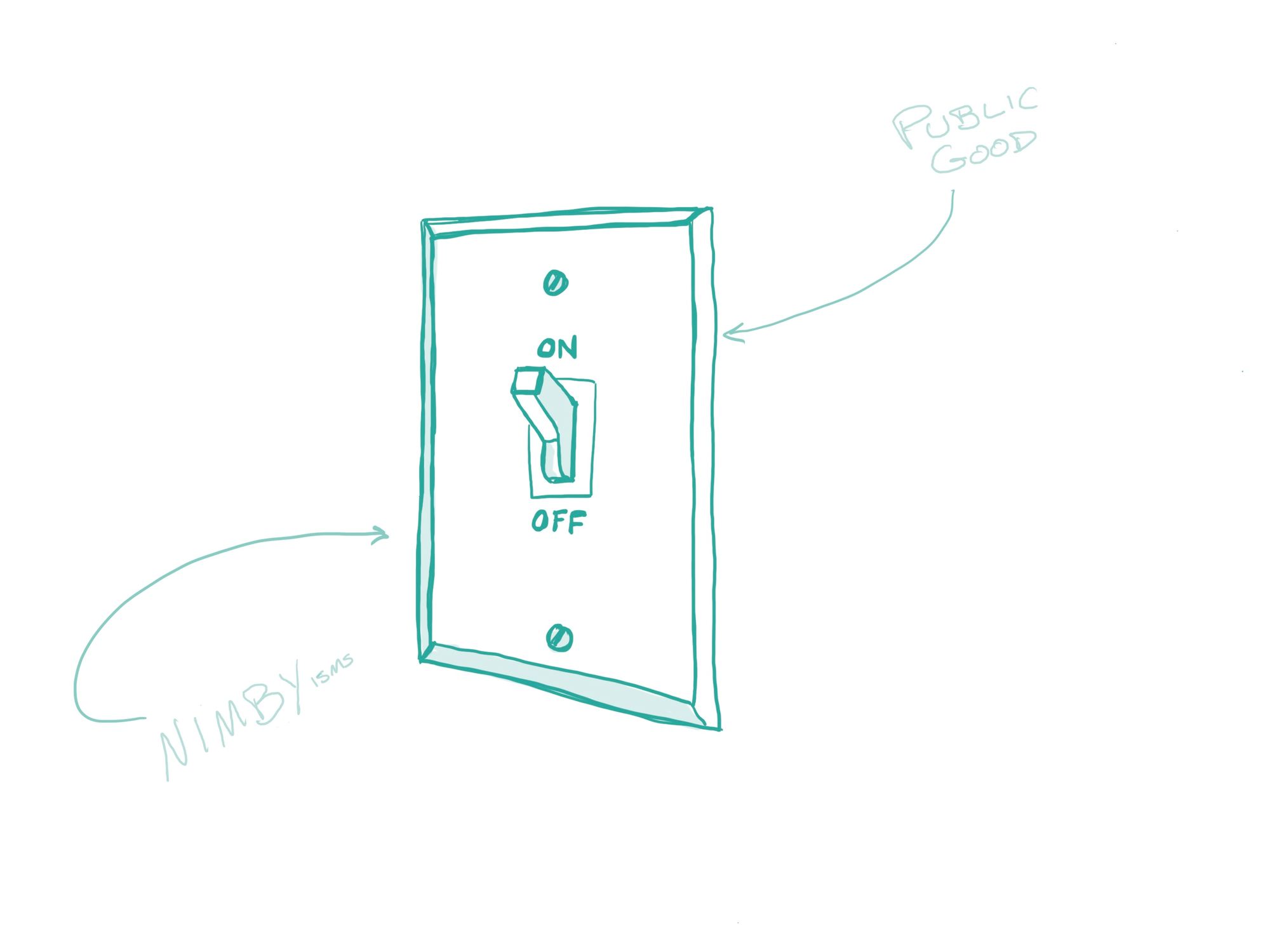Not In My Backyard
NIMBYism is the Fata Morgana of the 21st Century. Here's why we need to think beyond the NIMBYs.

Editors note:
I once walked into a hipster plant store and asked, "How do I get rid of clover?" and the staff looked at me like I cursed their mother. It turns out I'm a big fan of protecting the ecosystem so long as it doesn't pop up on my lawn. And that's what our guest author is going to write about today. Less about lawns, though. I've already talked about that in The War on Weeds and several times in the intro to The Weekly, like when I introduced you to Lawn Force One. He's going to cover the topic of NIMBYism and the ways it prevents us from getting what we want and need in our community infrastructure.
Brandon covers a much bigger picture than my soon-to-be plush lawn, although his coverage may not be as widespread as my clover infection. He reports on how we often support public policies that benefit us all in the long run until they inconvenience us for a moment. And that often halts progress in its tracks.
Brandon Evans is what I call a community organizer, although I don't actually know what that is. He's a long-time public relations professional besides. He spent years as an advocate for the public transit system in our shared city of Indianapolis, helping to pave the way for our first rapid transit lines, which continue to grow and continue to be criticized. He brings his perspective today in this guest article, Not In My Backyard.
Enjoy, like, and comment.
A Fata Morgana
“So, are you ready to pay my mortgage?”
That’s what a business owner asked me while I was working for our local public transit agency. I was there to discuss the plan to turn one of the five lanes of the road his business operated on into a bus-only lane.
He continued. “Are you ready to pay my truck payment, my kid's college tuition? Who is going to pay my employee's salaries? How will they feed their families? I guess I’m fine with the bus, but are you okay ruining my business and bankrupting my family?”
When people try to make you feel like you are ruining their lives by advocating for a common good like public transit, well, in no certain terms, it sucks ass.
I tried to sprinkle in some facts about the positive impacts of public transit, like how every dollar invested in transit generates five dollars in economic returns. Or how this project would rebuild sidewalks and provide infrastructure improvements his community has requested for years.
But the old saying rang true: the two things people hate most are the status quo and changing it. The man before me was immovable, and his mind was set like concrete. The NIMBYism that runs deep in America when it comes to transit projects was on full display.
A Powerful Force
NIMBYism (short for "not in my backyard") is a term used to describe opposition by residents to proposed developments in their local area. Developments they might have supported if they were anywhere else.
This is a force so powerful it can halt progress in its tracks. It's a bipartisan plague, a cancer that undermines our infrastructure and future. It's one of the reasons our nation's public transportation system is a laughing stock compared to the rest of the developed world.
NIMBYism is the enemy of progress. It's the siren song that lures us into the rocks, the mirage that leads us astray. It's the voice that tells us to fear the new, to resist change, to protect ourselves from the outside world. But NIMBYism is a lie. It's a mirage, an illusion. It's the Fata Morgana of the 21st century, beckoning us with false promises of safety and comfort.
In the cozy cocoon of their well-trodden turf, NIMBYs hibernate, content in their comfortable bubble. They claim to be the people's voice, but they quiver with fear at the thought of any alteration to their surroundings. NIMBYs envision traffic jams, dying businesses, and plummeting property values. They worry about noise, crime, and the influx of outsiders. Their fear is palpable, and their opposition fierce.
But who are these NIMBYs, truly? Are they simply selfish individuals, more concerned with their comfort than the needs of others? Or do they represent a more profound anxiety about the changing world around us?
Perhaps they are nostalgic for a simpler time when their neighborhood was a haven from the outside world. Maybe they are afraid of the unknown and the challenges of the new, of people who don’t look like them, speak like them, or think like them. Whatever the reason, their opposition to progress is undeniable. They stand as a barrier to developing communities nationwide, a blockade to creating a more inclusive and equitable world.
Protection At Your Own Expense
It's easy to be swayed by the emotional appeals of those who oppose change. But it's important to remember that NIMBYism is often an ideology of carefully crafted ignorance. It's about protecting one's comfort and property values at the expense of the greater good.
Next time you see a news article about a transit project, beware of the siren song of the concerned citizens. Their claims and comments may be well-intentioned but also based on fear, misinformation, or narrow self-interest. Don't take their words at face value. Dig deeper. Ask yourself, who are these concerned citizens? What are their real motivations? Do they represent the interests of their community or just their own? Or do they even consider their own self-interests when opposing a project like public transportation or another public good?
We need to think beyond the NIMBYs. We need to imagine a city and country where everyone has access to affordable transportation, where people can live and work where they want, and where we can all move around freely and easily.

